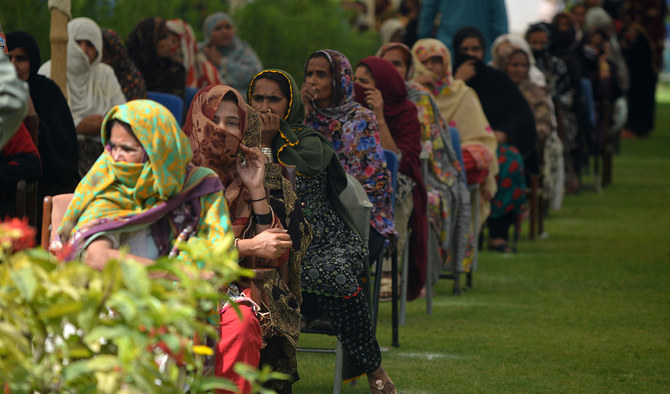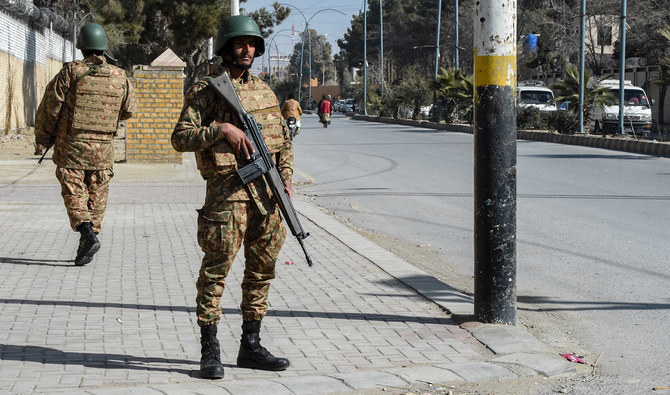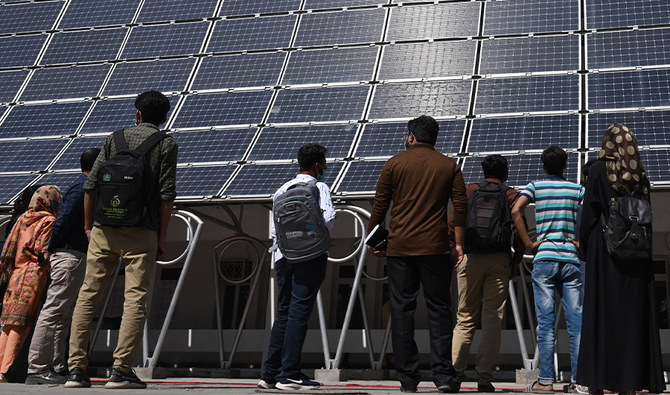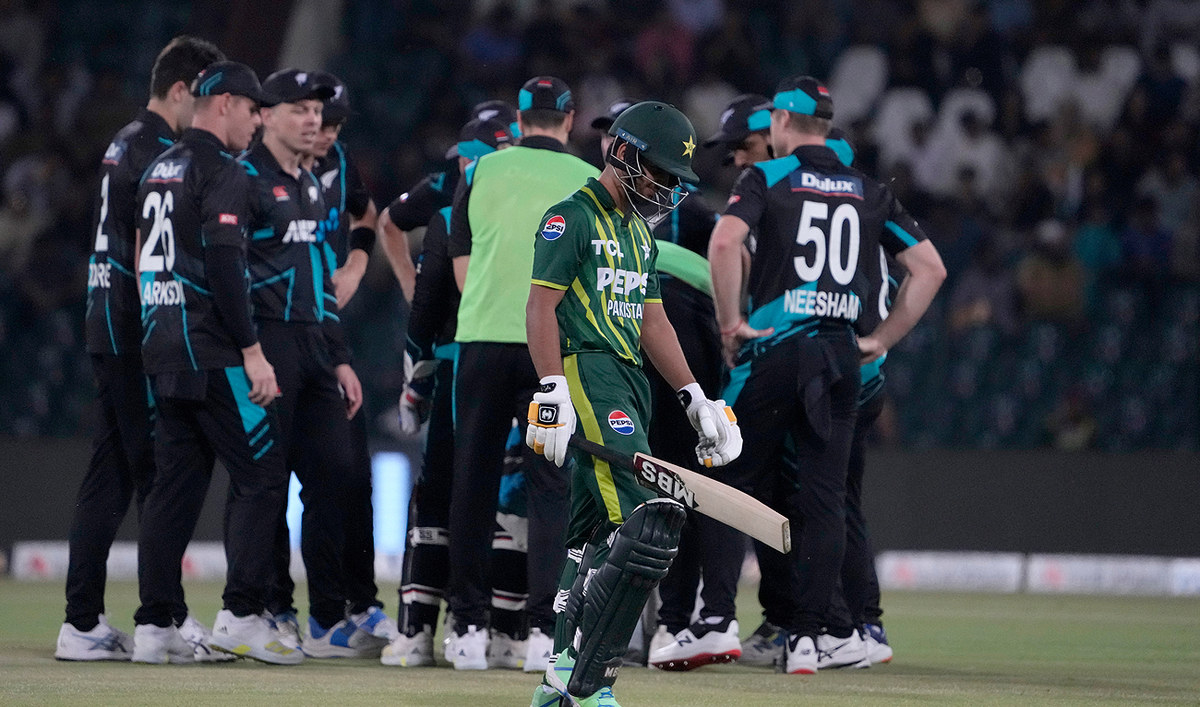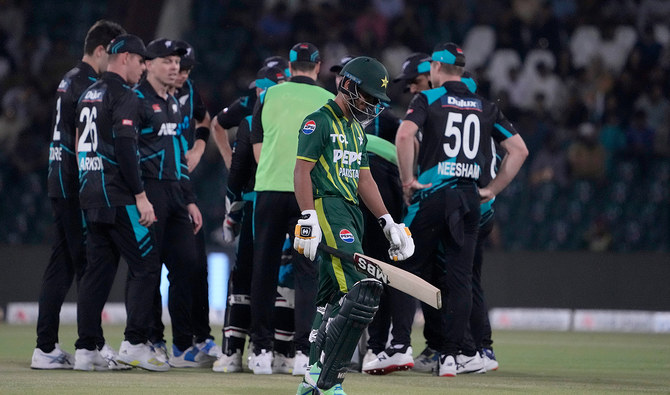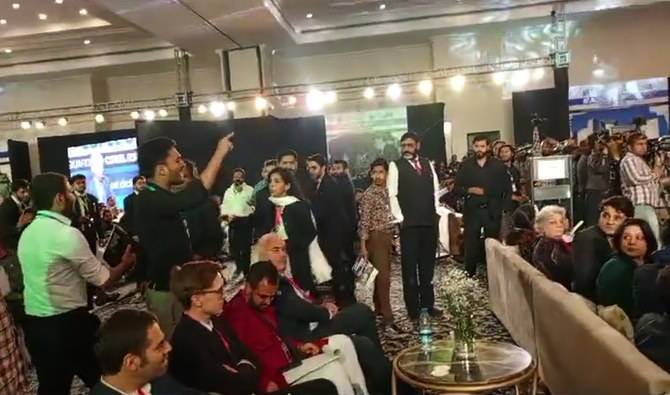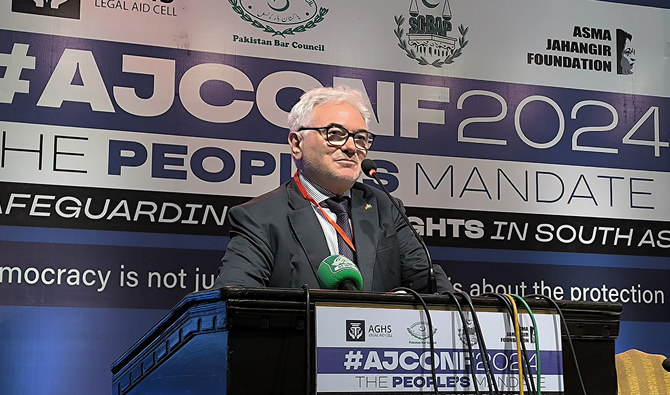PESHAWAR: Days after a jirga or traditional council in Pakistan’s Bajaur district banned women from standing in line for a government-sponsored cash grant program or calling radio stations to play their favorite songs, provincial officials denounced the move, warning tribal elders to retract the “illegitimate decision” or face legal consequences.
“It is a stark violation of human rights and a step in contravention of law,” Kamran Bangash, Information Minister of the northwestern Khyber Pakhtunkhwa (KP) province which includes the Bajaur tribal agency, said in a video clip on Saturday.
“We have directed local officials to convince them to take their decision back. Otherwise, strict action will be taken against them,” he added.
On Friday, nearly two dozen tribal elders attended the jirga in Bajaur’s Sawi village which ruled that women in the area could no longer visit government-run centers to collect the Child Wellness Grant (CWG) from the Citizen Facilitation Centers (CFC), or call radio stations, as it was “anti-Islamic” and against tribal traditions which makes the purdah (veil) mandatory.
Any tribesman found violating the rule or “allowing his woman to visit the centers” would have to pay a fine of Rs10,000.
However, Malik Farman Ullah, a tribal elder, told Arab News that the jirga was ruling in favor of the women who “had to wait for hours in a queue to collect the stipends.”
“We’re not against the cash grant program, but we’ve asked the government to give money to male members of a family instead. Why is it made mandatory for a mother to receive the stipend? Can’t a father get the cash instead,” he said.
District administration officials said that most women take their children to the CFCs for “guidelines on how to groom them and what kind of nutrition they need.”
“The CWG is not a cash assistance program; rather it’s a child health maintenance initiative,” Fazal Rahim, assistant commissioner at the local administration, told Arab News.
Bajaur is a remote, mountainous tribal region which borders Afghanistan. According to a 2017 census, the area’s population is more than 1 million, but it’s unclear how many women and children constitute that number.
Funded by international donors, the CFC program was launched by the provincial government in 2015, while the cash distribution process began in Bajaur in December 2019.
“Each woman can register up to three children, and a total of 69,678 families can benefit from the scheme. Each child gets Rs.12,500 after every five months for two years. This program will last till 2024 but is extendable,” Rahim said.
There are three CFC centers in Bajaur, which are working “smoothly,” but the government has made it mandatory for women to visit the offices for the cash benefits, leading to the jirga’s displeasure over the move.
However, in a separate meeting on Saturday, the jirga members assured authorities that “no step would be taken against the law,” Rahim said.
“The jirga was convened by a few irresponsible persons in the Mamond (main town) with no participation by responsible elders from Sawi village. If these people don’t take their statement back, then legal proceedings will be initiated. No compromise on that,” he added.
Up until 2018, when a constitutional amendment led to the merger of the erstwhile Federally Administered Tribal Areas (FATA) with the neighboring KP province, Bajaur had been a hotbed for militancy, with its residents bearing the brunt of the conflict for several years due to a lack of education, employment opportunities, and basic human rights.
Convening a jirga is part of a centuries-old custom of handing out swift justice. Decisions taken at these informal gatherings are often binding, and villagers rarely question the judgment for fear of retribution.
Citing the merger, however, Information Minister Bangash said that there was “no room for such decisions” as the region was no longer governed by the Frontier Crimes Regulation (FCR) – a British-era law which made it mandatory for an entire tribe to be punished for the crime of an individual.
He added that while the provincial government cherished the jirga’s customs and traditions, its latest decision was “against the law and violated human rights,” forcing authorities to take “strict notice of the incident.”



